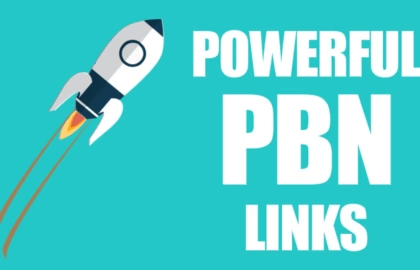PBN Backlinks Private Blog Networks (PBNs) have long been a controversial topic in the world of search engine optimization (SEO). While they offer the promise of fast and powerful backlink acquisition, they also come with significant risks, especially when it comes to Google’s guidelines. In this guide, we’ll explore what PBN backlinks are, how they work, the potential benefits and dangers, and how to approach them safely (if at all).
What are PBN Backlinks?
PBN backlinks are links that originate from a network of websites owned by a single entity, with the primary purpose of manipulating search engine rankings. These websites often appear independent on the surface but are strategically designed to funnel link juice to a target site, boosting its authority and rankings.
How PBNs Work
- Acquiring Expired Domains: PBN builders often purchase expired domains with existing authority, backlinks, and history.
- Website Creation: These domains are developed into websites that appear legitimate, often filled with generic or spun content.
- Link Placement: Links are strategically placed within the content of these sites, pointing to the target site that needs a ranking boost.
- Maintenance: To avoid detection, PBN owners often maintain these sites to ensure they do not look abandoned or overly promotional.
The Pros of PBN Backlinks
- Quick Rankings Boost: PBNs can provide rapid increases in search engine rankings, particularly in less competitive niches.
- Control Over Links: Unlike natural outreach, PBNs allow total control over anchor text, link placement, and the timing of link acquisition.
- Ability to Target Specific Pages: PBNs can help boost specific pages or keywords that may be struggling to rank.
The Cons and Risks of PBN Backlinks
- Violation of Google’s Guidelines: Google explicitly discourages the use of PBNs and may penalize sites that use them.
- Risk of Manual and Algorithmic Penalties: Sites caught using PBNs can experience severe drops in rankings or be de-indexed entirely.
- High Costs and Maintenance: Building and maintaining a PBN can be expensive, considering domain purchases, hosting, content creation, and management.
White Hat Alternatives to PBNs
- Guest Blogging: Contributing valuable content to reputable sites in exchange for backlinks.
- Content Marketing: Creating high-quality, shareable content that naturally attracts backlinks.
- Digital PR: Leveraging press releases and media outreach to earn authoritative links.
- Link Reclamation: Identifying and reclaiming lost or broken backlinks.
Conclusion
While PBN backlinks can deliver short-term gains, they come with significant risks that could jeopardize long-term SEO success. Businesses should carefully weigh the potential benefits against the dangers of penalties and lost credibility. Whenever possible, white-hat link-building techniques provide a safer and more sustainable path to higher rankings and organic traffic.
This guide aims to provide clarity on the topic of PBNs, offering insight into their mechanics and helping marketers make informed decisions in their SEO strategies.






